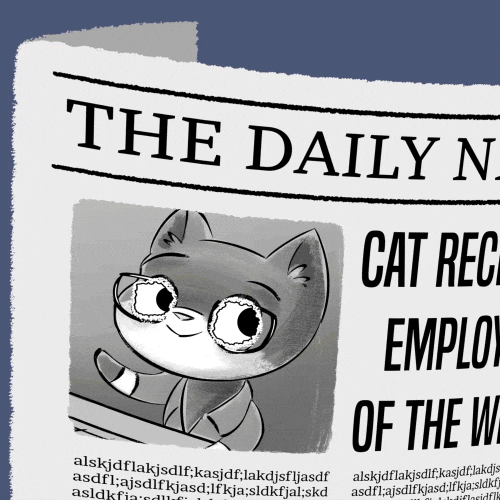
Pay close attention to news and trends. When you ‘read between the lines,’ you can uncover hidden career opportunities while increasing your comfort with industry lingo needed for networking and job interviewing in your field. News, social media trends and even advertisements provide information that opens your mind to companies and roles you may have never considered, and even ones at smaller niche companies with fewer applicants. When viewed with a career exploration lens, news and trends can illuminate what excites you. Use that information to notice which industries motivate you, and decide where you can cultivate your expertise.
Follow news and trends to clarify what you want, identify companies you may never have heard of before, learn about the problems you can help companies solve, and increase your industry expertise on trends. The knowledge you gain will prove helpful in every step of your internship or job search and later throughout your career.
Many students say they “just want a job,” but no employer wants to hear that, and in reality, the more you know about what energizes you, the more you can develop a niche and set yourself aside from other candidates in the job search. Plus, purpose and mastery are two core elements of career satisfaction (Daniel Pink, author of Drive: The Surprising Truth of What Motivates Us). Purpose and mastery come from doing work you’re excited about! News and trends can help you find what you like and want to be good at!
Practical Tips to Utilize News & Trends to Clarify Your Interests, Find Opportunities, and Increase Your Expertise
- Read news and listen to podcasts with a career lens – Reading industry news and listening to industry podcasts exposes you to current events and innovations. If you find an article interesting enough to read and maybe even share it, that’s a clue that this could be an area you’ll enjoy working with.
- Engage with social media with a career lens – Are people or companies sharing information on social media that you like? If you’re engaged enough to interact with these posts, this can help you recognize what excites you.
- Find companies you may have never heard of before – As you read stories about a topic of interest, notice what companies are prominent in this space? Which ones are doing exciting work? Consider whether these are companies you might like to work for.
- Learn about problems that you can help companies solve – Most good stories feature a situation. Notice the issues that need solving for companies, and gauge your interest in being part of the solution.
- Increase your industry expertise – knowledge is power. Understanding industry trends will help you maintain engaging networking conversations, thoughtful informational interviews, and successful job interviews. It can also help you learn what kinds of language to use in your application materials. For example, suppose you are interested in supply chain management and are up on fundamental industry trends. In that case, you’ll feel more comfortable talking about issues related to the field with people who can provide you with pivotal career opportunities.
- Notice advertisements to guess which companies might have budgets to hire – If you see a company spending big bucks on ads, there is a good chance this company has the budget to hire interns and staff.
Example of what this might look like (fictional): Anna is excited about Artificial Intelligence but worried about what could happen if computers control the world. She might like to work in this space, but she’s unsure where the jobs are. She read articles on the future of AI and listens to relevant podcasts to see what conversations people are having, who is having these conversations, where they work, and what they do? She notices advertisements on TV and pays attention to which companies are in the AI space. She finds companies she may never have heard of before through her media research. She notices the problems companies are trying to solve and considers the types of jobs that would provide solutions, using industry job search sites to supplement her knowledge. She generates a list of target companies using 2 Hour Job Search materials. She finds staff at top companies using the Duke Alumni database and LinkedIn and sets up informational interviews to learn more about what kinds of jobs exist, what those jobs are really like, and what steps she could take if she wants to enter this field. She can increasingly talk about what interests her because of the media she has digested. She develops industry contacts and mentors who further nurture her search and career success.
Resources for your next steps
- Research is a critical part of the job search process – The U.S. Department of Labor’s guide to using research in your job search
- Two-Hour Job Search – Generate a sortable and prioritized target list of companies and contacts using Duke professor Steve Dalton’s proven method. This video is well worth your time, but if you prefer step by step written instructions, here’s a resource on how to make a target list.
- Become a Resource section of How to Build a Personal Brand Without Being Annoying – As you do your research, you may find content you want to share. Cynthia Johnson, author of the book Platform: The Art and Science of Personal Branding, shares some quick tips.(available through interlibrary loan)
- What to say when you’re reaching out to someone on LinkedIn – So you’ve done your research on industry news and trends, and want to talk to people to learn more, but you don’t know how to reach out? Here’a an article with scripts you can adapt to your situation.

